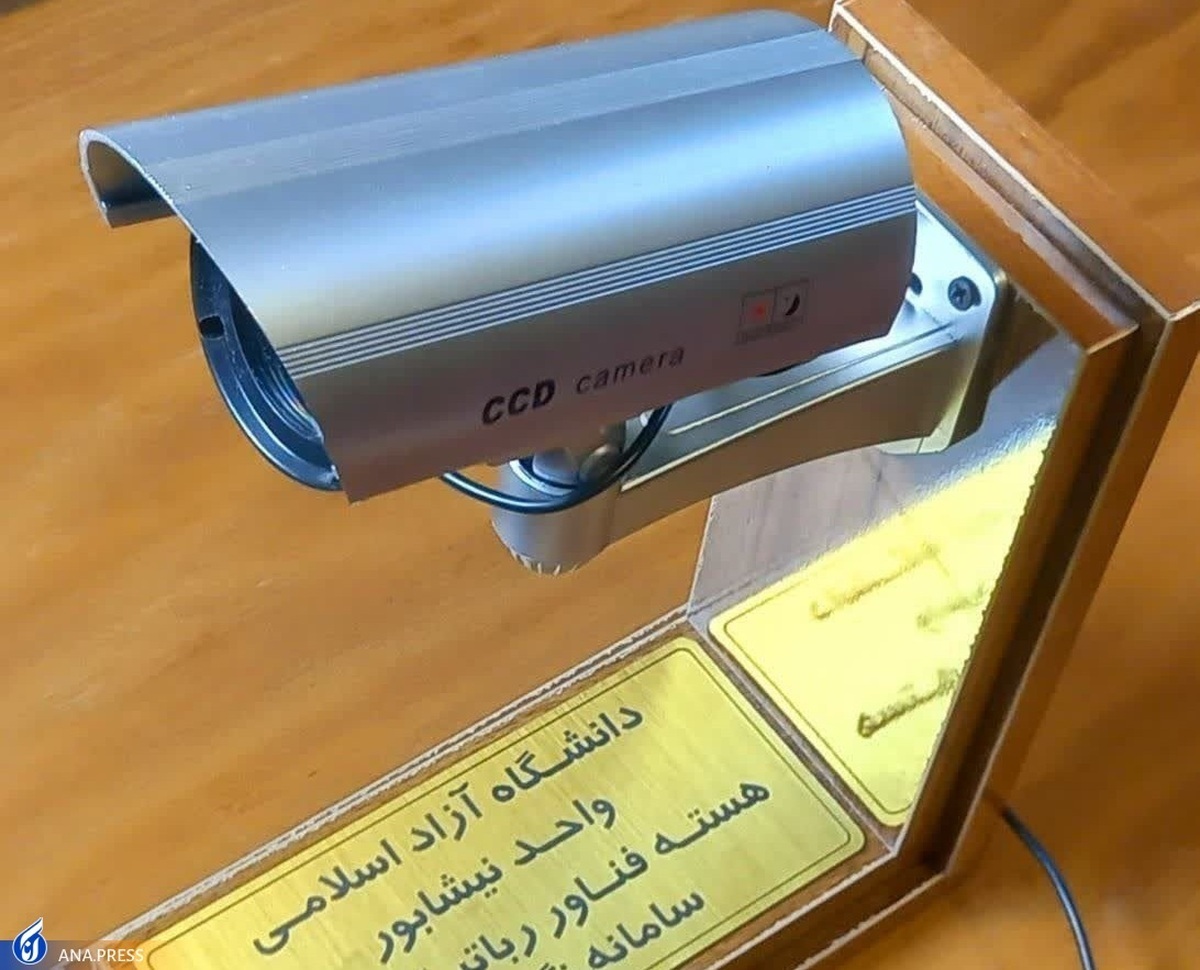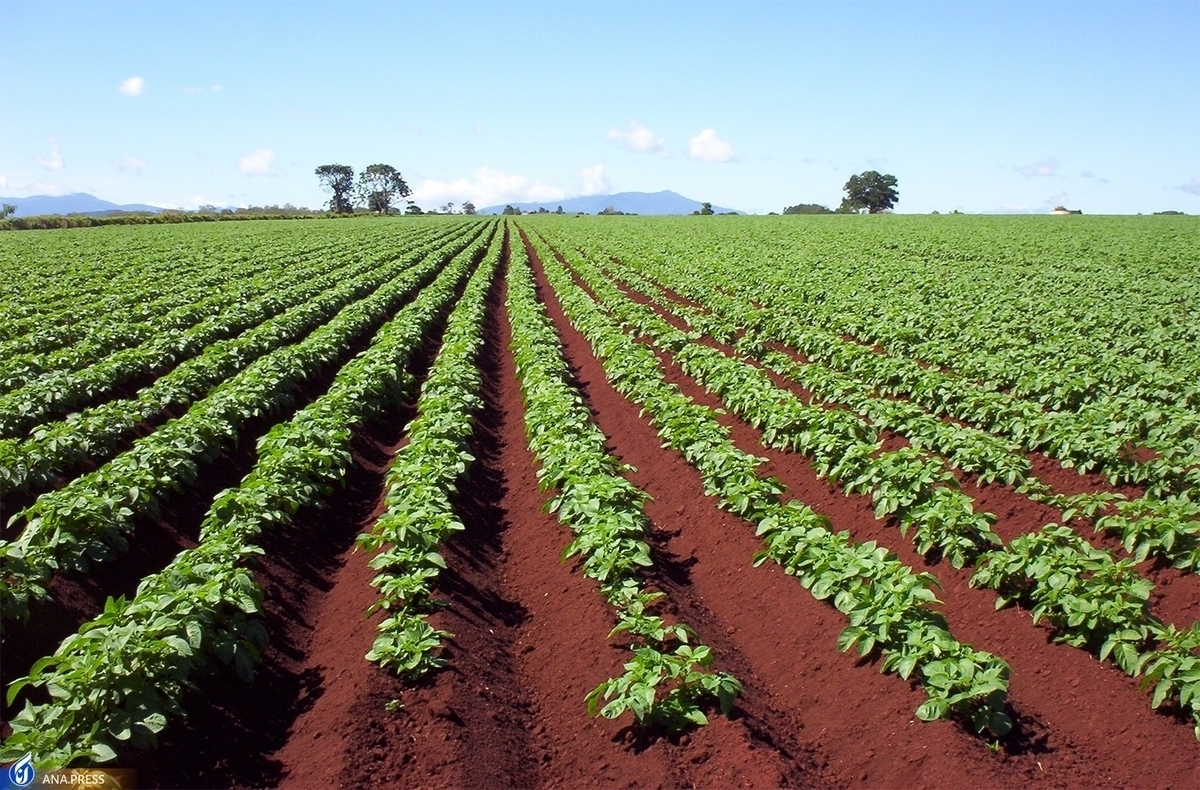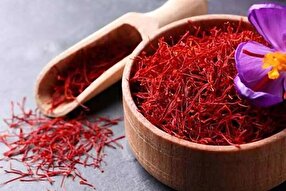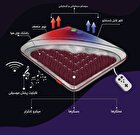Top News of Last Week with ANA

Azad News Agency (ANA) published a number of scientific and technological news during the past week whose top ones are as follows:
Iranian Knowledge-Based Company Acquires Technology to Repair Optical Fibers Cable in Sea
A senior Iranian official said that the problem of disruption in the internet network of the country, due to the disconnection of optical fibers, was resolved domestically with the help of a knowledge-based company, noting that 720 gigabytes were added to Iran’s internet capacity.
The Iranian company repaired the damaged optical fiber cable (GBI) in the seabed of the Persian Gulf, which occurred earlier this year and led to the disruption and reduction of international communication capacity in the country; it managed to first locate the damaged electrical optical fiber cables in the deep sea and then repaired and restored the damaged part, which was four kilometers in length, in a difficult and complex operation. The measure saved time and reduced costs amid the harsh US sanctions against the country.
Amir Mohammadzadeh Lajevardi, the CEO of Infrastructure Communications Company of Iran, said that repairing the optical fiber cable added 720GB to the country’s internet capacity.
Iran-Made Dietary Chocolate Reduces Weight, Prevents Osteoporosis, Improves Digestive System
An Iranian Ph.D. student succeeded in production of ultra-beneficial dietary chocolate which can prevent constipation and osteoporosis, reduce weight and treat kidney stones.
“Natural sweeteners can be used as a suitable substitute for sugar in the diet of diabetic patients and the people who want to reduce calorie intake and thus it loses weight,” Sousan Karimi, a Ph.D. student of Food Technology at Islamic Azad University’s Shahr-e Kord branch, told ANA.
She described chocolate as one of the most consumed non-dairy food products among all age groups, specially children and teenagers, saying that since chocolate is a food product with fast metabolism and high calories, the sucrose inside it can be replaced with low-digestible carbohydrates to reduce calories and glycemic index and prevent obesity, blood lipids, diabetes and tooth decay.
“The beneficial dietary chocolate contains sugar substitutes along with oleaster powder rich in fiber to prevent constipation and osteoporosis, treat kidney stones, lose weight and improve digestive system’s performance,” Karimi said.
Iran Ups Aluminum Output by 21% in 7 Months
Iran witnessed aluminum output increase by 21 percent in the first seven months of the current Iranian year (started on March 21) compared to the same period last year, showing the government's efforts to boost activity in the metals and mining sector.
Iranian Mines and Mining Industries Development and Renovation Organization (IMIDRO) announced that 367,274 tons aluminum ingot was produced in the seven-month period of this year, while the figure was 303,829 tons in the same time span of the previous year.
Among the country’s four major producers, South Aluminum Corporation (SALCO) had the best performance in the first seven months of the present year, producing 157,311 tons of aluminum ingots, followed by Iranian Aluminum Company (IRALCO) producing 102,441 tons, Almahdi Aluminum Company producing 86,330 tons, and Iran Alumina Company producing 21,192 tons of the product.
Iranian Company Produces Herbal Dressings for Diabetic Wounds Healing
An Islamic Azad University-based company produces herbal dressings to heal diabetic wounds without causing allergy in the patient’s body.
“This company started working in the research center of South Tehran Branch of Islamic Azad University and through the efforts of Dr. Maleknia. In this company, we produce nano materials such as powders, nano composites, and nano powders. Fortunately, nanomaterials have been used by students and are widely cited in references in students' articles,” Ghazaleh Chizarifard, the managing director of Andishmendan Pars Research Company told ANA.
She added that one of the products that their company produces is herbal dressing for diabetic wounds, which is made from plant materials, which makes it more compatible with the human body.
Iran-Made Nano Kits Able to Diagnose HIV
Iranian knowledge-based companies used nanotechnology to produce special kits to diagnose HIV virus or AIDS disease.
“Iranian knowledge-based companies have effectively contributed to the diagnosis and control of AIDS disease by producing special nano kits,” Associate Professor of Infectious Diseases Department of Tehran University of Medical Sciences Ladan Abbasian told ANA.
She explained that AIDS disease or HIV virus is transmitted to humans through sexual intercourse, mucous or thick skin contact with infected blood, and contact with infected secretions of a patient.
Iran-Made Device Removes Mercury Vapors in Broken Fluorescent, Energy-Saving Lamps
A technological company in Iran developed a special device for the disposal of mercury vapors from the wastes of fluorescent, energy-saving and gas lamps.
The company has designed an Iran-made device that crushes energy-saving, fluorescent and gas lamps before relocating them to a recycling center and controls all mercury vapors in these lamps.
The device is equipped with a 200-liter tank that can hold 300kg to 350kg of lamp waste.
Mercury particles and vapors are controlled and removed by the filters installed in the device during the crushing process, removing all concerns about the broken lamps during storage, handling and transportation.
Iranian Knowledge-Based Company Turns Oil Sludge, Urban Sewage Waste into Usable Products
A knowledge-based company in Iran has achieved the technology to convert oil sludge and waste from urban sewage treatment into usable products and fuel.
Ali Khani, a Ph.D. graduate in applied chemistry-environmental engineering and a faculty member of Islamic Azad University’s Mianeh branch, along with Ali Rasoulzadeh, the founder of the knowledge-based company, are the manufacturers of the multi-functional co-pyrolysis system for recycling all types of urban, industrial and agricultural waste in Iran.
“Our knowledge-based company has succeeded in producing the multifunctional co-pyrolysis device which is used for recycling all types of worthless rejected waste,” Khani told ANA.
Scientists Use Machine Learning to Peer into Future
Researchers at the Ohio State University discovered a new way to predict the behavior of spatiotemporal chaotic systems, such as changes in Earth’s weather, that are particularly difficult for scientists to forecast using a new type of machine learning technique called next generation reservoir computing.
The research, which was published in the journal Chaos: An Interdisciplinary Journal of Nonlinear Science, makes use of a brand-new, highly efficient algorithm that, when combined with next-generation reservoir computing, can learn spatiotemporal chaotic systems in a fraction of the time required by traditional machine learning algorithms.
Researchers put their method to the test by predicting the behavior of an atmospheric weather model, a challenging problem that has been researched extensively in the past. The Ohio State team’s algorithm is more accurate and needs 400 to 1,250 times less training data to generate better predictions than its rival, traditional machine learning algorithms that can do the same tasks. They used a laptop running Windows 10 to make predictions in a fraction of a second, which is roughly 240,000 times faster than conventional machine learning algorithms. Their method is also less computationally expensive; whereas solving complex computing problems previously required a supercomputer.
Iran-Made Printed Circuit Boards Meet Needs of Oil, Gas Industries
Printed circuit boards designed and manufactured by an Iranian company can fully meet the needs of domestic oil and gas industries.
Madar Rayaneh Pooya Company produces all kinds of printed circuit boards for electrical and precision instruments, which are needed by the oil and gas industries.
Alireza Karimi, the managing director of the company, told ANA that Madar Rayaneh Pooya Company produces all kinds of printed circuit boards is a knowledge-based company and started its activity in the field of manufacturing and designing printed circuit boards using reverse engineering.
Iranian Companies Flaunt Products at Int'l Paint Expo
Hundreds of Iranian Companies showcased their products and capabilities at the 22nd edition of Iran's International Paint, Resin, Coatings, Composites and Plating Industries Fair (IPCC 2022) which began on November 30 and ended on December 03.
90% Water Saving with Invention of Iranian Researcher
An Iranian researcher invented a special product which can save water up to 90 percent, helping the country amid drought and shortage of water.
“‘Plant Factory’ saves 90% of water consumption in one case, in addition to many other benefits,” Mostafa Shateri, a Ph.D. student in Mechanical Engineering at Islamic Azad University’s Semnan branch and the managing-director of the knowledge-based ‘Pouya Fanavaran Energy’ company, told ANA.
He said that countries like the US, Japan, China and Malaysia are pioneers in using this technology.
“Our company made efforts to indigenize the know-how in this field and set up Iran's first ‘plant factory’ in Semnan province, which, in addition to thousands of benefits, will save 90 percent of water consumption in just one case,” Shateri said.
Iranian Company Produces Gelatin from Poultry Farms Waste
An Iranian knowledge-based company produces high-quality gelatin from poultry farms waste.
“Gelatin is a multi-purpose substance that is used in food, medicine, cosmetics and other industries as a gelling agent, stabilizer, thickener, emulsifier and film former as a capsule. It is a thermally reversible hydrocolloid, melting and gelation temperature of which is below the temperature of the human body,” Mojgan Asiayee, the managing director of Pishgaman-e Khalq-e Ideh Bartar Company, which operates with the support of Islamic Azad University, Semnan Branch, said in an interview with ANA.
“It is mostly produced from mammals’ body parts, including pig skin, cow skin, and bones. Some alternative sources such as fish and bird waste have recently attracted the attention of researchers and the industry as well," she said while explaining about their product which is called ‘food and drug hydrocolloid'.
Iranian Researchers Develop New Drug for Stomach Infection with Propolis
A group of researchers at a creative Iranian company have produced a drop that can cure stomach infection forever without causing side effects.
"Part of our studies in this company has focused on bee-related products for medicinal purposes. One of the important substances produced by these creatures is a wax called propolis,” Babak Ezati Ranjbar, the director of one of the creative Iranian companies announced.
Ezzati Ranjbar said that their company works on producing natural antibiotics as one of its research fields.
He explained that the propolis is produced by the bee to protect the hive and prevent the entry of insects or pollution.
Iranian University Student Designs Eco-Friendly Dams
An Iranian university student has designed and constructed dams that do not have any impact on the environment.
Mohammad Sadeq Rohbani, a master of science undergraduate in watershed management at the University of Tehran, told ANA that the dams are appropriate for arid and mountainous areas.
Gabion dams developed by the Iranian student are environmentally friendly, and designed as a viable solution for flood control.
New Process Could Allow for 100% Sustainable Aviation Fuel
A collaboration between the National Renewable Energy Laboratory, the Massachusetts Institute of Technology, and Washington State University opens the door to sustainable jet fuel.
An underused natural resource might be just what the airline industry needs to reduce carbon emissions, the journal Joule reported.
US researchers from the Massachusetts Institute of Technology (MIT), Washington State University, and the Department of Energy’s National Renewable Energy Laboratory (NREL) report success in using lignin as a path toward a drop-in 100% sustainable aviation fuel. Lignin makes up the rigid part of plant cell walls. Other plant parts are utilized for biofuels, but lignin has generally been overlooked due to the difficulty in chemically breaking it down and turning it into useful compounds.
4155/v
























